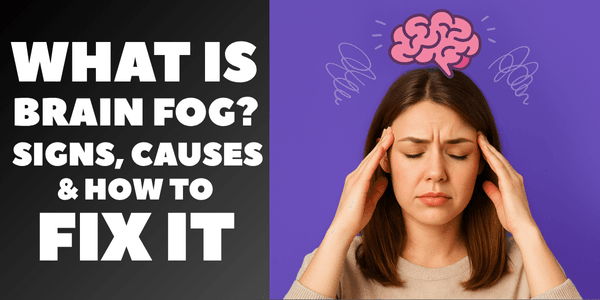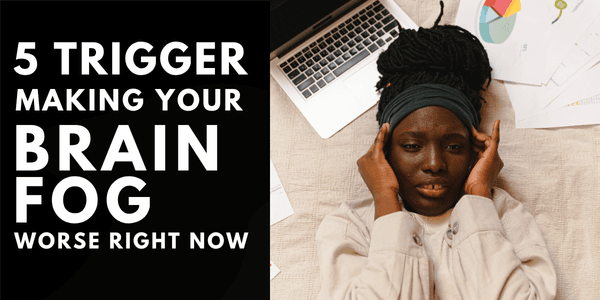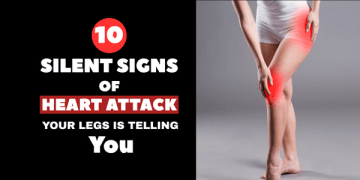Last Updated on June 30, 2025 by Lauretta Iyamu, PharmD
 If You’ve Tried Everything But Still Can’t Lose Weight…
If You’ve Tried Everything But Still Can’t Lose Weight…
You’re not imagining it.
So many women, especially those with thyroid disorders, autoimmune diseases, MS, or hormonal imbalances, feel completely defeated when nothing seems to work.
You clean up your diet.
You cut calories.
You push through workouts.
Still, the scale doesn’t budge.
And then you see it…
“Doctors now prescribing [Redacted Brand Name] for weight loss!”
“This pill could help you lose 10% of your body weight in just weeks!”
This weight loss pill sounds like the breakthrough you’ve been waiting for.
But is it really that simple?
Let’s break it down.
How This Weight Loss Pill Actually Works
This weight-loss drug belongs to a class of medications known as GLP-1 receptor agonists, originally developed to treat type 2 diabetes.
The active ingredient mimics a hormone called GLP-1 that:
-
Slows down how fast your stomach empties
-
Tells your brain you’re full
-
Reduces cravings
-
Helps manage blood sugar
-
May reduce inflammation, especially relevant for those with autoimmune issues
In short, it turns off your hunger dial hard.
But does that mean it’s your golden ticket to weight loss?
Who Is This Pill Designed For?
This medication wasn’t initially designed for general weight loss.
It was created for people with type 2 diabetes or obesity-related health risks.
Still, doctors are now prescribing it off-label to individuals who:
-
Struggle with chronic weight loss resistance
-
Have metabolic issues like insulin resistance
-
Are pre-diabetic or have blood sugar instability
-
Experience neurological fatigue that limits exercise
If that sounds like you, this medication may be a good fit.
But there’s a lot to weigh, no pun intended.
The Real-World Results: What Studies Show
Clinical trials of GLP-1-based weight-loss drugs are showing eye-opening results.
According to this peer-reviewed study from NEJM, participants lost up to 15% of their body weight when using the drug alongside lifestyle changes.
But here’s the catch: the results only lasted while they were on the medication.
When they stopped, many regained weight fast.
For lasting success, the medication must be part of a comprehensive, personalized strategy, rather than a standalone approach.
Why This Pill Can’t Replace Healthy Habits
No matter how effective the drug is, it doesn’t:
-
Teach you how to balance your hormones
-
Repair your gut health or reduce inflammation
-
Support your thyroid or adrenals
-
Help you build muscle or strength
-
Fix emotional eating patterns
If you rely only on the pill without adjusting your habits, the results won’t stick.
Begin with sustainable changes that align with your health goals.
If you have MS, start by boosting brain clarity during a flare.
Side Effects and Safety Check
This drug is powerful, and like all powerful tools, it has side effects.
You could experience:
-
Nausea and vomiting
-
Diarrhea or constipation
-
Headaches
-
Gallbladder inflammation
-
Risk of pancreatitis or thyroid tumors (rare but serious)
Some people also experience fatigue, dizziness, or mood changes, especially if already managing autoimmune, thyroid, or perimenopausal symptoms.
If you’re navigating hormone shifts, consider reviewing these hormone‑friendly nutrition tips.
Who Should Not Use This Weight-Loss Pill
This pill isn’t for everyone.
You should avoid it if you:
-
Have a history of thyroid cancer (especially medullary)
-
Struggle with pancreatitis
-
Are you pregnant or breastfeeding
-
Have severe GI issues (gastroparesis, for example)
-
Can’t tolerate nausea or appetite suppression
And if you’re already dealing with conditions like Hashimoto’s or hypothyroidism, read this first.
How to Take It Safely and Smartly
If prescribed, your doctor will likely start you on a low dose and increase slowly.
Injections are typically administered weekly, although some daily versions are available.
Tips to reduce side effects:
-
Don’t take it on an empty stomach
-
Stay hydrated
-
Eat small, protein-rich meals throughout the day
-
Track your symptoms
-
Pair with an energy‑conserving routine to avoid burnout
Also, communicate with your provider regularly, especially during the first 8 weeks.
Alternatives That May Work Better For Some Women
If a weight-loss drug feels too risky or unaffordable, don’t panic.
There are effective, gentle alternatives:
-
High-protein, anti-inflammatory nutrition plans
-
Stress hormone management (hello, cortisol and belly fat!)
-
Smart strength training even with low energy
-
Targeted supplements to support metabolism naturally
-
Therapeutic movement and rest cycles
Begin with our straightforward, realistic guide to losing weight without vegetables, especially if picky eating is also a barrier.
Should You Try the Pill?
This weight-loss medication is powerful, but it’s not a magic solution.
It can support your journey if:
-
You’ve hit a wall with traditional approaches
-
You have a history of weight-loss resistance
-
Your doctor approves and monitors it
-
You’re also willing to change the habits that caused the gain in the first place
But it’s not a quick fix, and it’s not for everyone.
Final Takeaway
Think of this pill as a potential booster, not the engine. The engine is still:
-
Your metabolism
-
Your hormones
-
Your habits
-
Your self-awareness
And the best results always come from integrating multiple approaches.









































